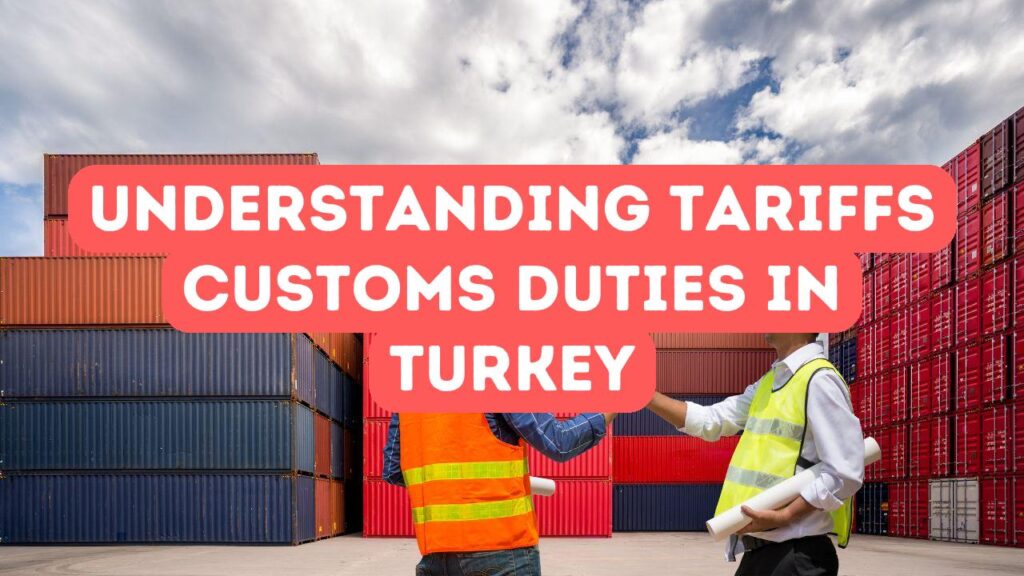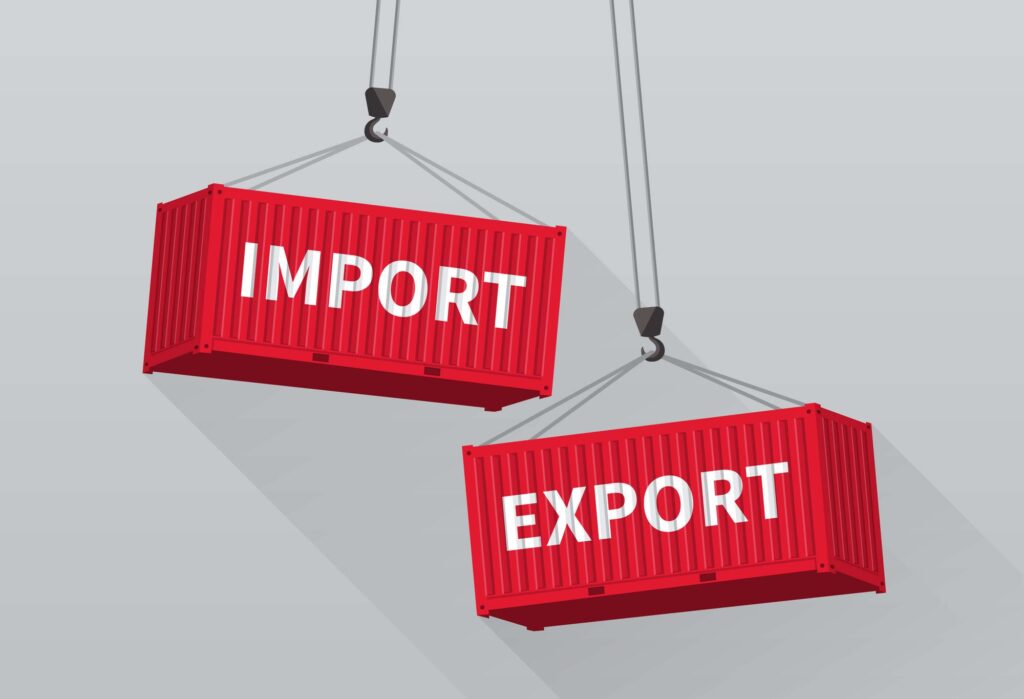Understanding tariffs in Turkey can often seem like unraveling an elaborate puzzle. Dive deep into Turkey’s intricate maze of customs duties, and you might feel overwhelmed. Yet, mastering this complexity is crucial for businesses aiming for smooth operations in Turkish markets. Turkey import regulations set the stage, guiding what enters and exits the country. Ever found yourself tangled in a web of trade policies in Turkey? You’re not alone. That’s why we’ve assembled this handy guide. These tariffs do more than levy costs; they’re vital tools shaping Turkey’s trade landscape. Understanding tariffs isn’t just about numbers—it’s about strategy. With a grasp on these, businesses not only comply but thrive. Smart navigation can unlock potential opportunities, turning regulatory challenges into gateways for growth. By diving into Turkey’s trade matrix, this guide will illuminate a path through the often confusing terrain of Turkish customs duties and regulations, empowering your business journey.
Navigating the Complexities of Turkey’s Tariff System
Deciphering tariffs in Turkey feels like unlocking a vault, where each twist unveils another layer of complexity. Turkey’s tariff system isn’t a straightforward path. It’s a winding road with customs duties Turkey throws your way. For every business eyeing a fruitful journey in Turkey, understanding tariffs is paramount. It’s about seizing trade policies Turkey offers as opportunities. One minute you’re decoding Turkey import regulations, the next, you’re using that knowledge to outmaneuver competitors. Perhaps it seems daunting now, like walking a tightrope without a net. But gripping these nuances transforms hurdles into stepping stones. With each chapter of this guide, you’ll find that tariffs aren’t barriers but rather tools for strategic growth. Understanding tariffs within Turkey might initially require patience, but your reward is the promise of thriving in a complex market stage, where informed steps spell profit.
Navigating the complexities of Turkey’s tariff system is akin to mastering a challenging board game. Success hinges on knowing the rules—those intricate tariffs in Turkey and the customs duties Turkey imposes. Turkey import regulations provide the playbook, yet each move requires strategy and wisdom. Trade policies Turkey enforces might appear as hurdles, but with keen understanding, they morph into opportunities. Awareness and preparation allow businesses to anticipate twists on their business board. Understanding tariffs becomes an art of reading between the lines, recognizing that within these policies lies the potential for competitive advantage. It’s about playing the long game, where knowing each chapter of Turkey’s trade regulations can redefine your path. By crafting a well-informed strategy, businesses don’t just survive; they thrive, leveraging tariffs to fuel growth and innovation. It’s this informed approach that turns Turkey’s complex tariff landscape from a challenge into an arena of opportunity.
Understanding tariffs in Turkey is akin to unraveling a mystery novel where each chapter reveals a clue to successful trade. Customs duties Turkey enforces are not mere obstacles; they’re pieces of a grand puzzle. Turkey import regulations set the boundaries of this narrative, where trade policies Turkey dictates can tilt the scales of fortune. Your journey involves more than just understanding tariffs—it’s about crafting a narrative that aligns with Turkey’s dynamic market. As businesses decode these Turkish trade policies, they uncover pathways previously hidden, akin to finding a hidden treasure map. When used wisely, these tariffs can transform from daunting questions into solutions, crafting success stories on the Turkish business landscape. It’s about seeing beyond the regulatory veil and transforming Turkey’s tariff intricacies into opportunities. So, equip yourself with the key insights, and these customs duties become your allies in the pursuit of growth and business excellence.
The Impact of Customs Duties on Import and Export Activities
Customs duties in Turkey hold significant sway over import and export dynamics. Imagine you’re steering a ship into Turkish waters, and tariffs in Turkey act as the tide, influencing how smoothly your vessel sails. These duties aren’t just fees; they’re strategic levers in trade policies Turkey employs to balance its economy. Every product crossing borders faces this reality—a tariff can either be a stepping stone or a hurdle. Businesses must meticulously navigate these intricacies to harness potential opportunities. But why do these duties matter so much to importers and exporters? Simply put, they impact the bottom line. Higher tariffs might increase costs, altering how competitive a product is in the market. On the flip side, understanding tariffs allows businesses to strategize efficiently, ensuring they remain viable within Turkey’s multifaceted trade framework. As you delve deeper into Turkey import regulations, becoming fluent in these nuances can be the difference between thriving or just surviving.
Customs duties in Turkey play a pivotal role in shaping the landscape of international trade. They act as the silent gatekeepers, influencing profit margins and pricing strategies. These tariffs in Turkey have the power to recalibrate business models by impacting everything from product pricing to supply chain logistics. For businesses eager to dip their toes into the Turkish market, understanding tariffs becomes essential, offering a clearer vision of potential profitability. Navigating Turkey’s import regulations can be likened to a chess game—every move requires careful thought and prediction of consequences. Trade policies in Turkey, with customs duties at their core, guide daily commerce, pushing companies to adapt swiftly. Failure to grasp these nuances can turn opportunity into obstacle. Yet, for those who wield this knowledge wisely, the result is not just survival but thriving growth in a competitive market. Each tariff, each regulation, becomes a piece of the larger trade puzzle to be solved.
Customs duties Turkey imposes can drastically shift the landscape of import and export activities. These tariffs in Turkey act like a pressure gauge, measuring and regulating the flow of goods. When tariffs climb, profit margins shrink, painting a stark picture of how these charges can carve into earnings. But when approached with a strategic mindset, understanding tariffs can turn the tide. For those well-versed in Turkey import regulations, opportunities abound. Trade policies Turkey crafts are often layered and complex, yet they offer a roadmap to prosperity. Businesses must weigh each decision, like a well-calculated risk, to stay afloat in the competitive seas. Customs duties safeguard domestic markets, yet for the astute, they also unlock pathways to success. The key lies in mastering the balancing act of compliance and opportunity, where each action taken can steer the course of trade towards thriving, dynamic growth.
Strategies for Compliance and Cost Management in Turkish Trade Policy
When dealing with tariffs in Turkey, a proactive approach can be a business’s best ally. Navigating Turkish trade policy requires knowing the ins and outs of customs duties in Turkey and leveraging Turkey import regulations to your advantage. First, understand that compliance starts with a thorough grasp of trade policies in Turkey. With penalties looming large for non-compliance, a solid strategy is crucial. Stay informed about changes and updates in Turkish tariffs and regulations—this could mean the difference between profit and loss. Cutting costs doesn’t always mean cutting corners. Instead, focus on strategic planning to mitigate expenses related to customs duties in Turkey. Consider consulting with experts who specialize in understanding tariffs and can offer insights into managing these costs effectively. Remember, wise strategies today can secure competitive advantage tomorrow, ensuring your business not only survives but thrives in the dynamic Turkish market.
Success in the Turkish market requires a keen eye on tariffs in Turkey and the related customs duties. Crafting a robust strategy involves engaging deeply with Turkey import regulations to not just meet, but optimize compliance. Consider tariffs as both a hurdle and a stepping stone. Tailor your approach to align with trade policies Turkey enforces, turning potential setbacks into strategic gains. Leveraging digital tools and expert counsel can be a game-changer. Stay ahead by subscribing to updates about new regulations—missing these could be costly. Additionally, trade alliances and partnerships can provide a crucial shield against the uncertainty of ever-evolving tariffs. Imagine your shipping processes as a well-oiled machine. Each component, from logistics to documentation, plays a role in reducing costs tied to customs duties Turkey enforces. The key lies in understanding tariffs as they exist, adapting, and evolving with strategic insights in mind.
Tackling tariffs in Turkey involves more than just adherence; it’s about innovation in compliance and cost control. Dive into Turkey import regulations with purpose, utilizing trade policies Turkey has set as a guide to streamline your operations. Understanding tariffs can turn seemingly complex hurdles into cost-saving strategies. Practical tools such as automation can simplify processes, ensuring customs duties Turkey imposes don’t dent your finances too deeply. Open dialogue with customs officials might seem old school, but it’s invaluable for staying informed. Equip your team with solid training around changes in regulations, as understanding tariffs is their shield and sword. Embrace flexible strategies that adapt swiftly to new trade policies Turkey rolls out. With the right mindset and actions, the dance with tariffs in Turkey becomes a savvy game of chess, where every move is calculated to enhance efficiency and profitability.






